Dear Suicide Bomber of Palm Springs
Anti-natalists aren't the only ones who feel like giving up right now. But life is worth living.
Hello - to my lovely subscribers, sorry I’ve been absent, life called me away, but now business resumes! And to everyone else, welcome, this is Minority Report, a newsletter about subcultures and fringe groups. It’s a somber 4th of July this year. This is the 10th year of my US citizenship, my 25th in Los Angeles, and I am full of sadness and rage as is everyone I know. Allow me to share some thoughts about this stormy time we’re living through, and how, as always, it’s a subculture story that has captured the moment…
Thank you for your support.
—
Peak Pessimism
You remember this story? About six weeks ago now, on May 17th, a 25 year old named Guy Edward Bartkus, from Twentynine Palms, California, blew himself up outside a fertility clinic in nearby Palm Springs. He’d packed his Ford Fusion with explosives. It killed him instantly, and injured four bystanders. He also tried to livestream the whole thing.
In his suicide note, which he’d posted to the website, promortalism.com along with a 30 minute audio recording, he explained that his death was connected to his friend Sophie, who had also died recently of suicide after convincing her boyfriend to shoot her in the head. He talked about Adam Lanza, the Sandy Hook shooter, radical veganism, and the anti-life philosophies of promortalism and also efilism (that’s “life” backwards”) which advocates for the end of all sentient life on the planet. As Bartkus said: “ It just comes down to I am angry that I exist and nobody got my consent to bring me here, and I know what you're gonna say. How could we have got your consent because you didn't exist, blah, blah, blah.”
For sheer hopelessness, efilists like Bartkus are hard to top. They swim in a broader pool of anti-natalists who maintain that the proper moral course for humanity is to phase itself out by not having any kids. Efilists just go a step further—they believe that we should also kill all the animals on the way out, or as their founder puts it, “gradually disinfect the planet”. More on him in a minute.
Pessimism is peaking in America. Readers of Minority Report will remember the Zizians story, the ‘murder cult’ who were driven to madness by the existential fear of AI. Bartkus had different reasons to disdain life, as did his accessory Daniel Park, 32, who provided the explosives, and then killed himself by jumping off the balcony in jail upon his arrest. But both stories indicate just how combustible hopelessness can be. It’s not just curling up in a fetal position. Sometimes, it goes boom.
Happy 4th of July by the way.
Aren’t we all more pessimistic than we were before? I am. There’s a looming terror, a hum of anxiety in the background, the sense that something big is coming, and we’re not ready. I pretend it’s not there as I go about my business, but I saw that Anne Frank quote that’s going around, just like everyone else did—the one about terrible things happening every day. I must have liked it or followed and now the algorithm thinks I like a bit of holocaust in the morning, a spot of existential dread, so it sends me more. I see Anne Frank all the time now.
It’s true, terrible things are happening. Government thugs are snatching children into vans. Troops are in the street and Batman villains are at the helm. War, genocide, plunder—it’s hard to maintain a sunny disposition. We appear to be hurtling toward dystopia like that fireball meteor that came down over Georgia last week. A metaphor. That meteor is us. Because what’s coming—and this is the dread speaking—will likely be a rupture so vast that it not only threatens humanity, but also our sense of what humanity even is. Why are we here. What is the point. Etc.
Anyway, this got me thinking about a few things—Matthew McConnaughey, AI doomers, JD Vance, Peter Thiel and Emil Cioran. If you too can hear that anxious hum in the background too, walk with me, you may feel better by the end.
The Anti-Natalists and the Efilists
The mistake I and many others made about the Palm Springs bomber was in assuming he was pro-life and not anti-life. It’s like the Horseshoe Effect for fertility clinic bombers. We’ve heard about pro-lifers protesting all the destroyed embryos, but anti-lifers, that’s new. (There’s just no winning if you’re a fertility clinic.) All the talk these days is of pro-natalism, as espoused by IQ-obsessed tech breeders like Elon Musk, as well as family-values “Christians” like JD Vance. Such are the times we live in that anti-natalism and pro-natalism are ascendant at the same time, the one fueling the other.
(The best source on anti-natalism, by the way, is Katherine Dee, who has probed the depths of this darkness for years. Her wonderful Stack, default.blog includes lengthy interviews with several of its leading figures. Check it out for a deep dive. But for a shallow one, let me summarize…)
The core idea of anti-natalism is that life entails suffering, so having children is to impose suffering upon them. It’s therefore better to simply stop having kids and persuade others to do the same, until humanity has died out—this is the broad thesis of South African philosopher David Benatar, no relation to Pat, who published “Better Never to Have Been: The Harm of Coming into Existence,” where the term “antinatalism” was “birthed”, as it were.
Efilism is the weapons grade distillate. The founder is a frenzied and broken prophet, (pictured above) with a string of YouTube channels, named Inmendham, as in “in Mendham”, a town in New Jersey, where he has broadcast some 15,000 videos. He’s in his sixties, he looks like a member of Whitesnake (specifically, the drummer), and for 18 years he has been arguing his deranged case. Dee describes him as “a one-man theater of cosmic pessimism.” His fans include Adam Lanza.
I don’t want to wade into this tangled world—it’s all highly academic, buzzing with isms, and rife with disputes, alliances and feuds, as you might expect. In this wing of the academy, however, the professors seem unwell. Among the ideas that swirl are voluntary euthanasia, the removal of incentives for having children, and ultimately pro-mortalism, the active encouragement of death, which inevitably veers into suicide advocacy. Which is a crime.
Rust Cohle
Do you remember Rust Cohle on True Detective, Season I? Great character, great season, and superb performance by Matthew McConnaughey. In quite the about-turn for Mr Alright-Alright-Alright, he became Mr Not-Alright-At-All-Actually. For many, Cohle was a gateway to anti-natalism and the case for human extinction. A depressive icon.
If Bartkus hadn’t blown himself up, I’d love to ask him whether he was influenced by Cohle.
Here’s one of his gems:
“The hubris it must take to yank a soul out of non existence, into this meat. And to force a life into this thresher.”
Here’s another:
"I think human consciousness is a tragic misstep in human evolution…. I think the honorable thing for our species to do is deny our programming, stop reproducing, and walk hand in hand into extinction, one last midnight, brothers and sisters opting out of a raw deal."
(In case you’re thinking to switch up your morning affirmations, here’s a full dose of Cohle’s poetic pessimism…)
At the time, I found Cohle exhilarating. Anyone who has known depression will feel seen by his bleak eloquence. He’s extreme, of course, which is part of the thrill, but relatable nonetheless. Because in truth, depression was part of why I chose not to have children. I wasn’t sure I’d be a net force for happiness in my future children’s lives because I was afraid my depression would infect them in the way my parents’ unhappiness had embedded itself into me. There are other reasons—it’s complicated, and I wrote an essay about it ages ago for Esquire (which I’ll update one day, the reasons change as you get older).
I want to be clear, I’m by no means an anti-natalist but there’s a point of contact. I can see the path they’ve chosen, without going there myself.
What Is Humanity Anyway
In 2025, it seems to me that hopelessness isn’t entirely irrational. There are degrees, like any kind of pain—a 1 to 10 scale that only we can comprehend—but to despair is human, and this year, especially so, given you know.. everything.
For the Zizians the overwhelming fear is of AI—a fear that many of us share. And it doesn’t help to listen to our tech overlords on the subject, either, since they appear to have given up on humanity long before we have. The latest clip that the algorithm shows me, after Anne Frank, is this excerpt from Ross Douthat’s extraordinary interview with Peter Thiel—yet more evidence that humanity’s next chapter is being written by people who are missing a piece of their humanity.
Douthat: I think you would prefer the human race to endure, right?
Thiel: Uh ——
Douthat: You’re hesitating.
Thiel: Well, I don’t know. I would — I would ——
Douthat: This is a long hesitation!
Thiel: There’s so many questions implicit in this.
Douthat: Should the human race survive?
Thiel: Yes.
Douthat: OK.
Thiel: But I also would like us to radically solve these problems. And so it’s always, I don’t know, yeah — transhumanism. The ideal was this radical transformation where your human, natural body gets transformed into an immortal body.
Thiel’s company Palantir is the Dark Castle of the totalitarian nightmare that is quietly enveloping America. As Caroline Cadwalladr puts it, he is “building a techno-authoritarian surveillance state… huge amounts of data on every single person in America that can and will be used in opaque and unaccountable ways.” At one point, Douthat asks him if the Antichrist would be pleased with Palantir and Thiel brushes the thought away, as the Antichrist would.
And notice how Thiel pivots from any allegiance to humanity, to talking about transhumanism, a fusion of machine and human, an alteration of our very nature. He goes onto say this:
Thiel: The word ‘nature’ does not occur once in the Old Testament. The way I understand the Judeo-Christian inspiration is it is about transcending nature… People are fallen… [But] with God’s help, you are supposed to transcend that.”
He’s talking about the manipulation of our physical bodies, the incorporation of tech into our biology. Which is one way to attack our sense of what a human being even is.
Another way, is what AI is currently engaged in at scale—replacing us. It came first for our souls, sweeping the most human of endeavors like storytelling, music, art and film. But its threat is so much broader. Millions of jobs. The complete upheaval of society. The owners of AI have no idea what might follow the destruction they’re ushering in—all Sam Altman can muster is a shrug about Universal Basic Income, which sounds increasingly like the final stage of the totalitarian takeover. But what about everything else that work gives us? Purpose, meaning, confidence, expertise, accomplishment, teamwork and pride. Our sense of participation in the world. The structure of our days. The point of our education. If AI applies a wrecking ball to the principle orientation of human life, an existential crisis of cosmic proportion feels inevitable. What are we supposed to actually do?
Count me among those who expect religion to make a comeback. An ancient counterweight to AI’s vaunted God properties. Driving through Highland Park, last Sunday, I saw a crowd of young people in their 20s and 30s pour out of a gleaming new church on Figueroa, a hipster house of worship, where attractive urbanites can find at least some of what science and technology has set about destroying—purpose, belief, community. Few would have bet on a Christian revival in this famously liberal city, but when our sense of humanity itself is being assailed, religion might be just the antidote we need. The copium of the masses.
Embrace The Absurd
If I could have written a letter to Bartkus, the Palm Springs bomber, it would have been about Emil Cioran, the Romanian existentialist. He was a pessimist too, absorbed with failure, suicide, the tragedy of birth and so on. But his brand of dismal was luminous, and not without joy. It would have provided a benign, less explosive home for the anti-natalists, or anyone else who’s feeling a little bleak in these times.
Cioran saw the world as absurd and meaningless, the universe as fundamentally indifferent, and birth as a “catastrophe” which we spend our entire lives fleeing. But he wasn’t suicidal, or as Rust Cohle puts it, “not great at parties.” He grew old as a professor and writer, he published widely, he knocked around with Beckett, Susan Sontag was a big fan. He made the most of this absurd and meaningless life.
Cioran would have told Bartkus that suicide always came too late. You’ve already experienced the pain of existence, and you don’t know what the future will bring. So ending your life is a solution to a problem that has already come and gone. Furthermore, he writes, “only optimists commit suicide. Optimists who no longer succeed at being optimists. The others, having no reason to live, why would they have any to die?”
His answer—which might help all of us, in the madness of America in 2025—is to love the world for its absurdity, and not for the meaning that it might provide… because it won’t. Of course we must fight for what’s right and moral—and oppose this monstrous administration—but panning out, we would be better embracing the meaninglessness. Lean into the epic disinterest of the cosmos:
“When all the current reasons—moral, esthetic, religious, social, and so on—no longer guide one’s life, how can one sustain life without succumbing to nothingness? Only by a connection with the absurd… I live because the mountains do not laugh and the worms do not sing.”

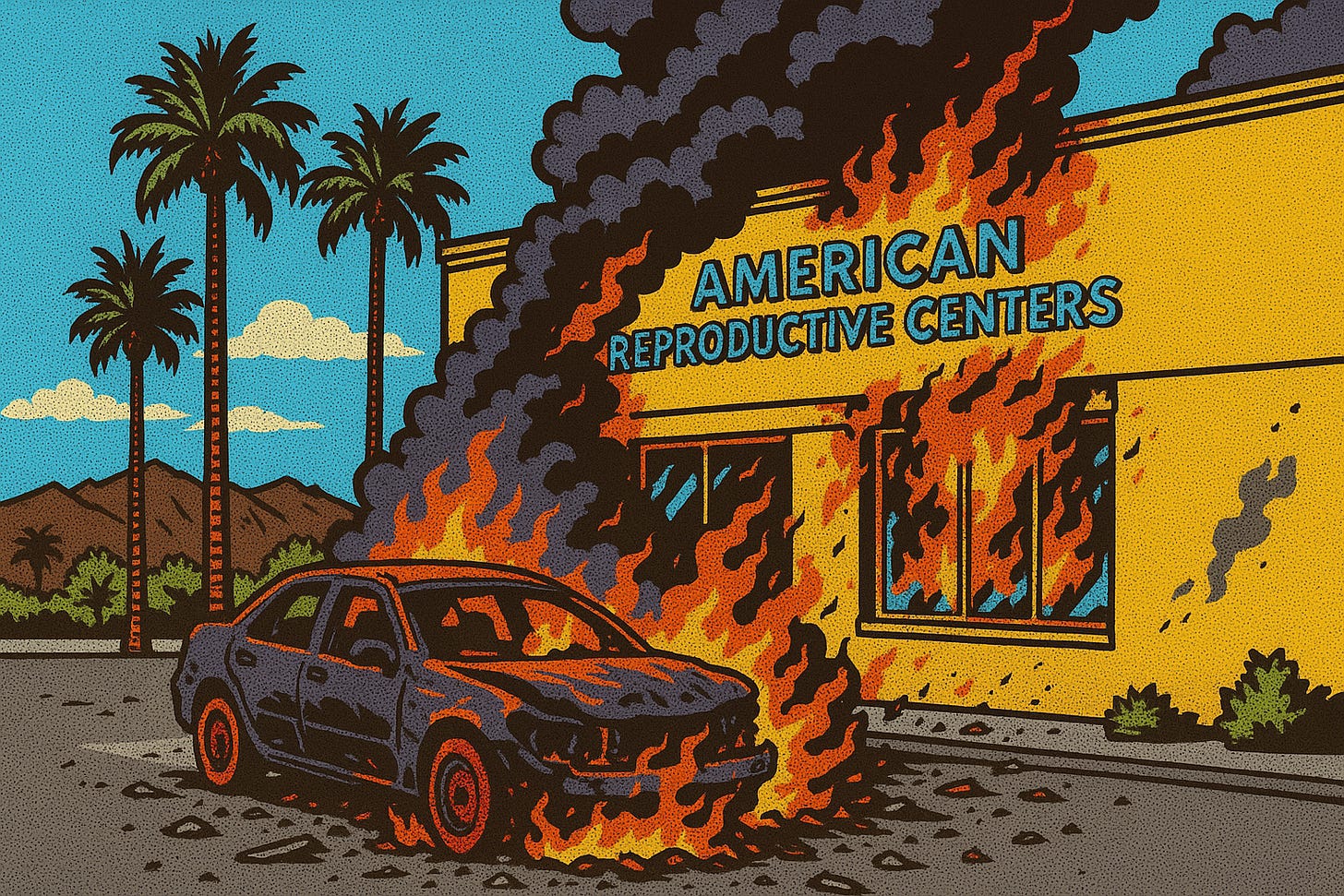
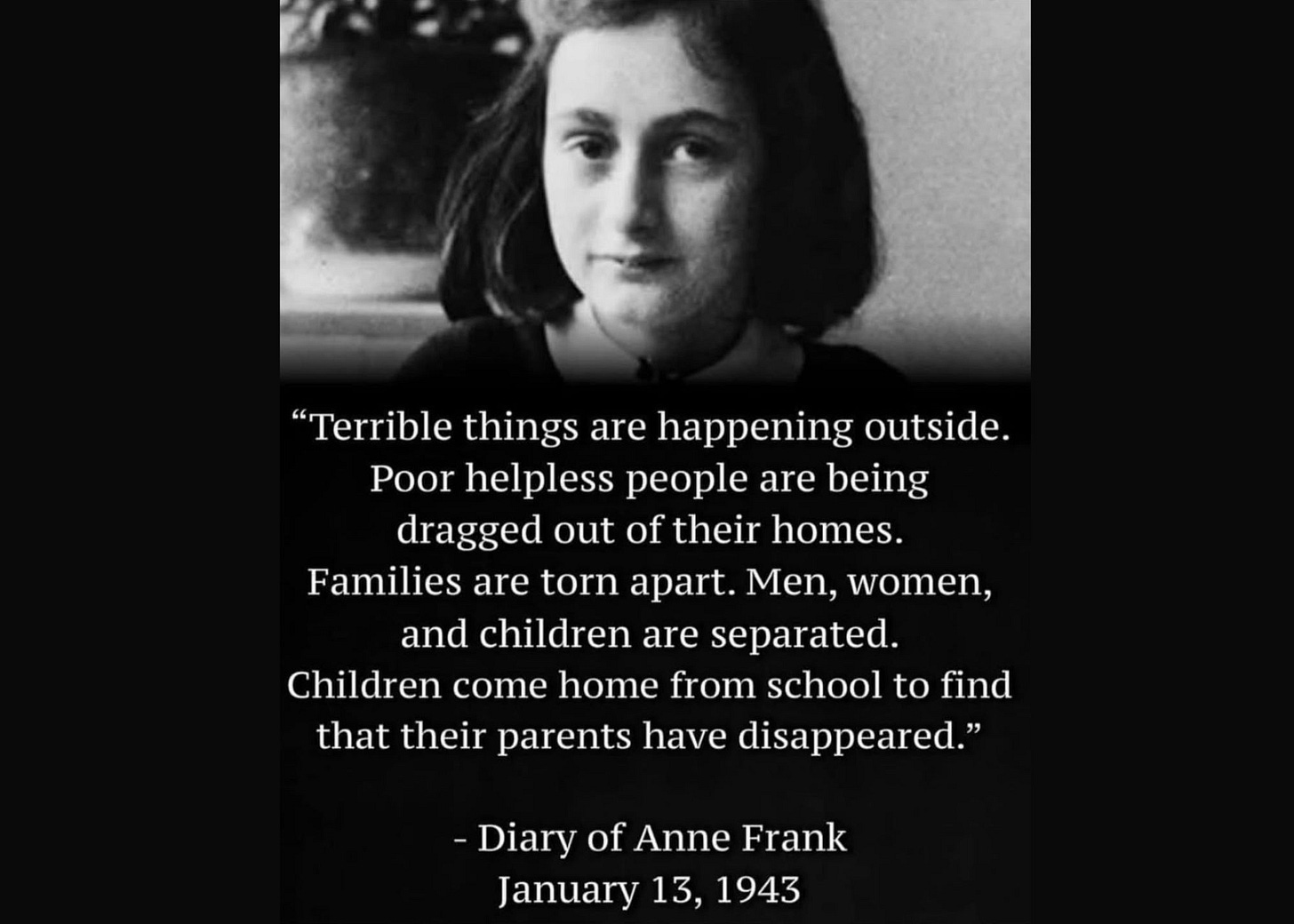
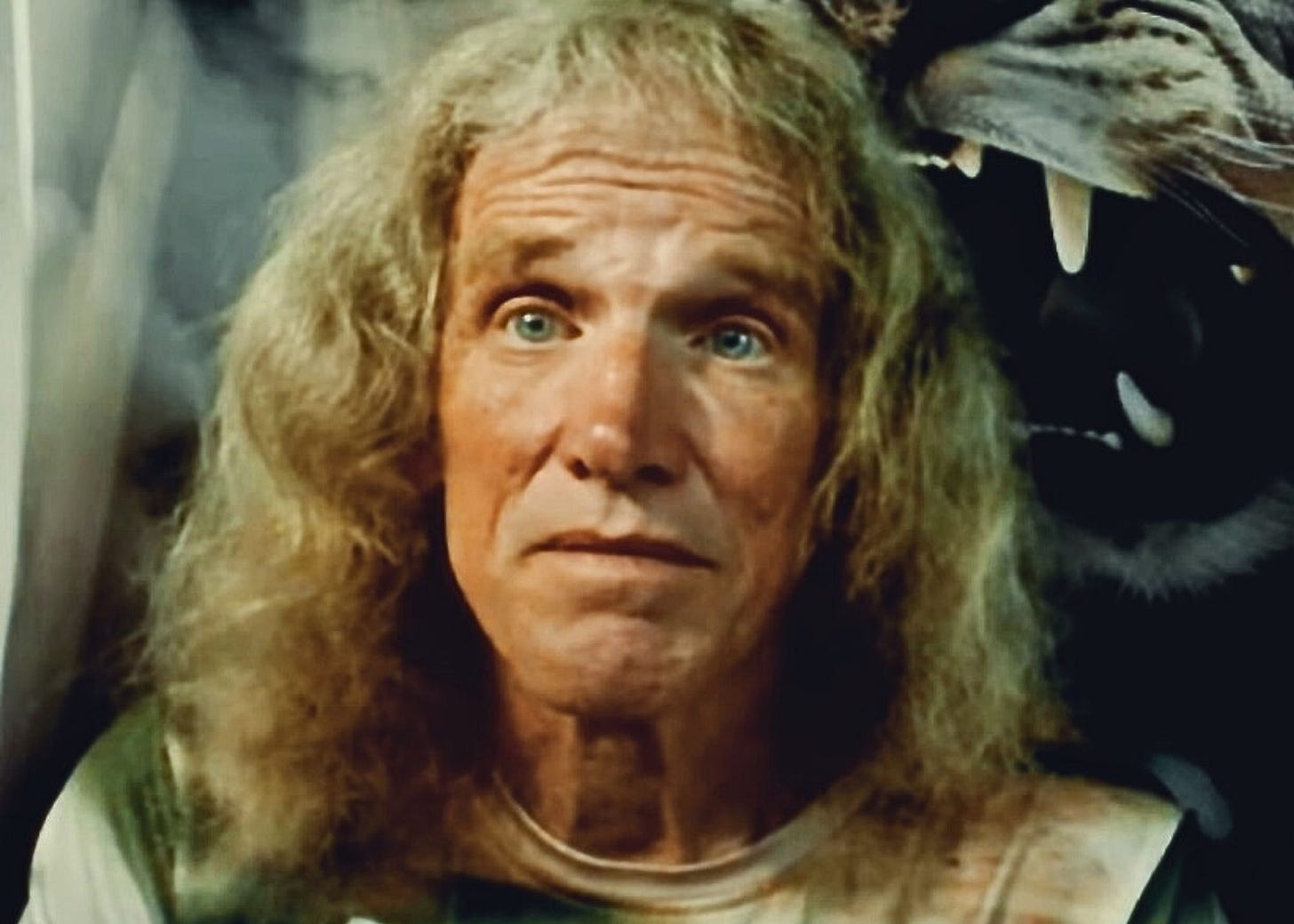
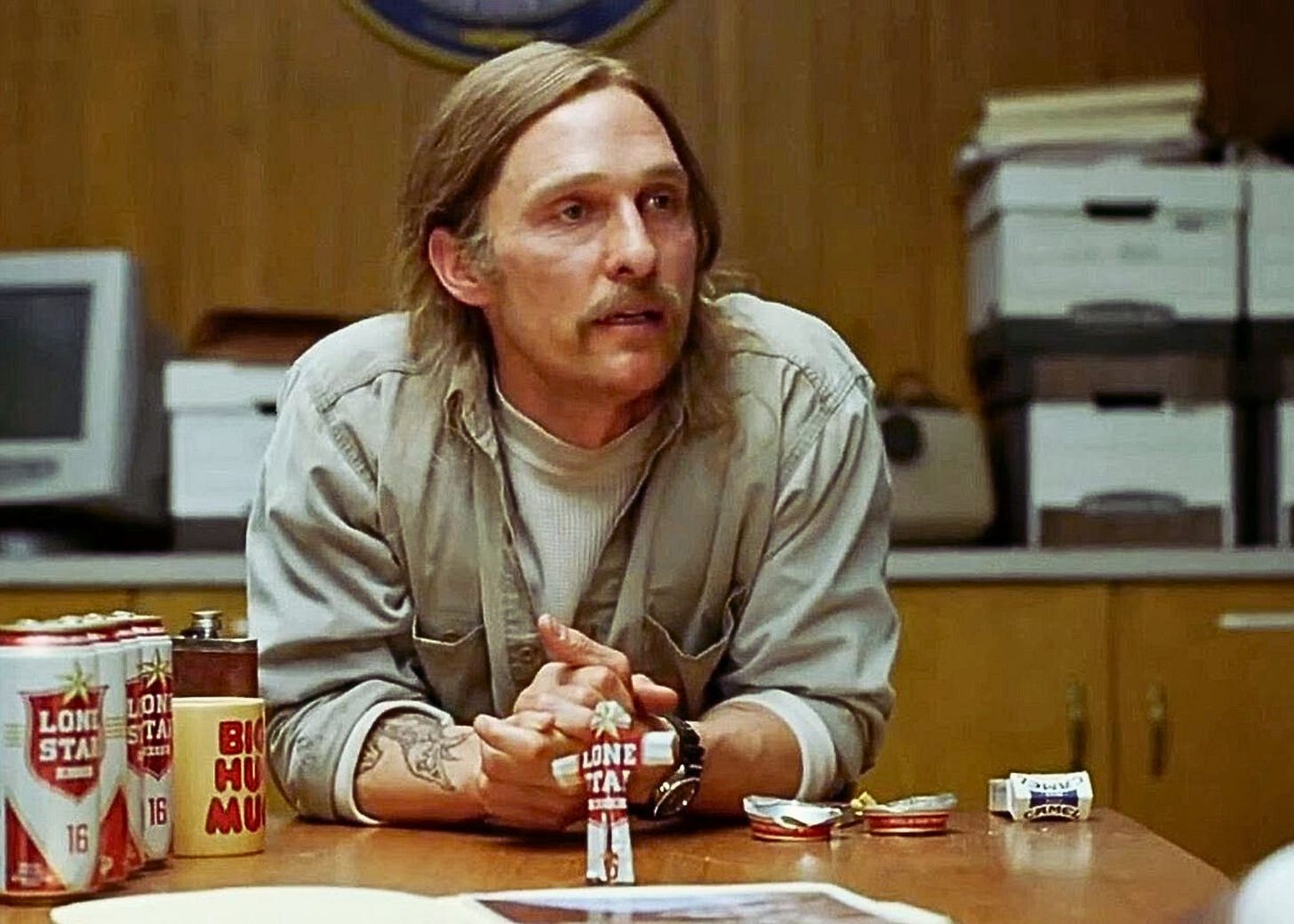
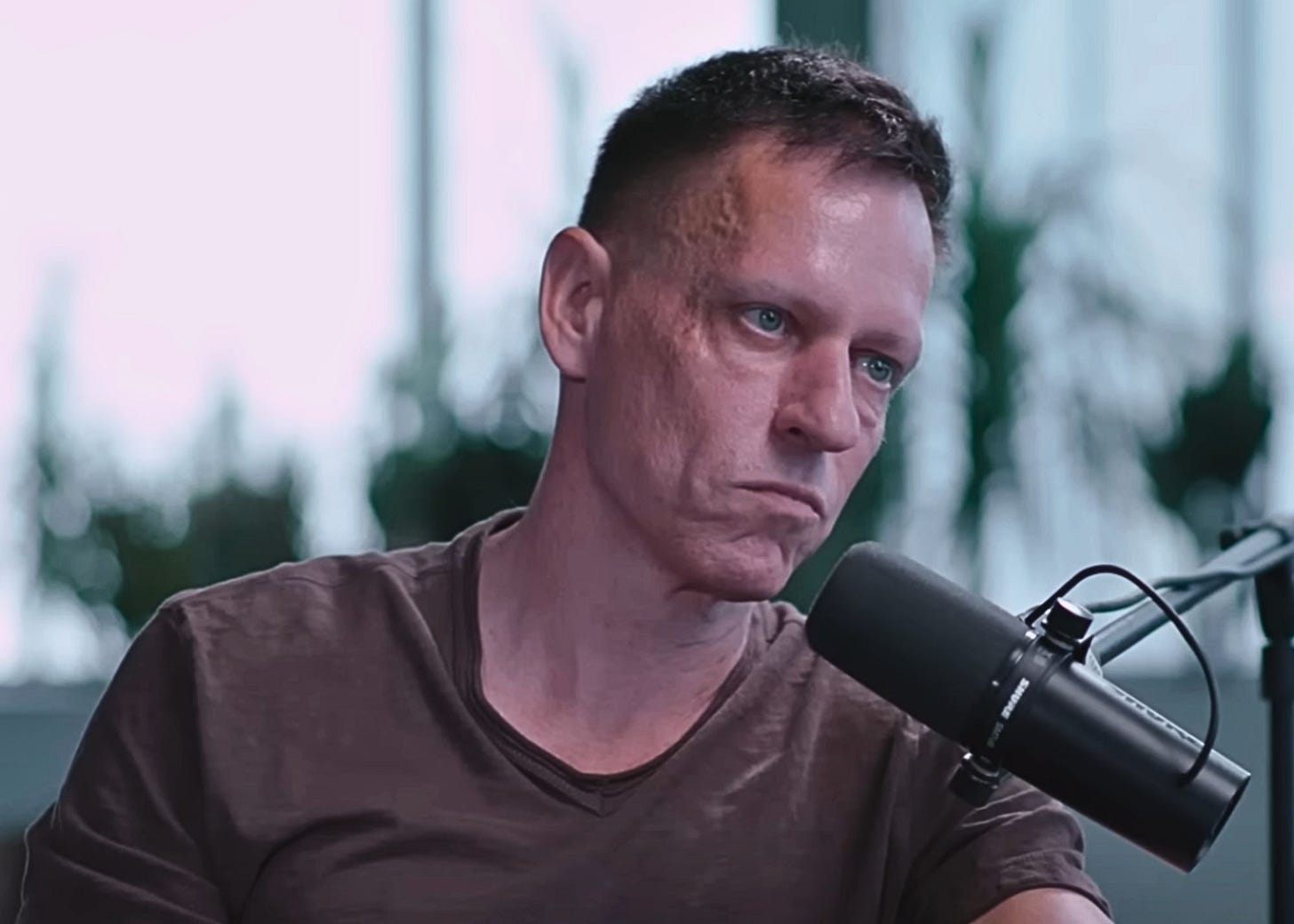
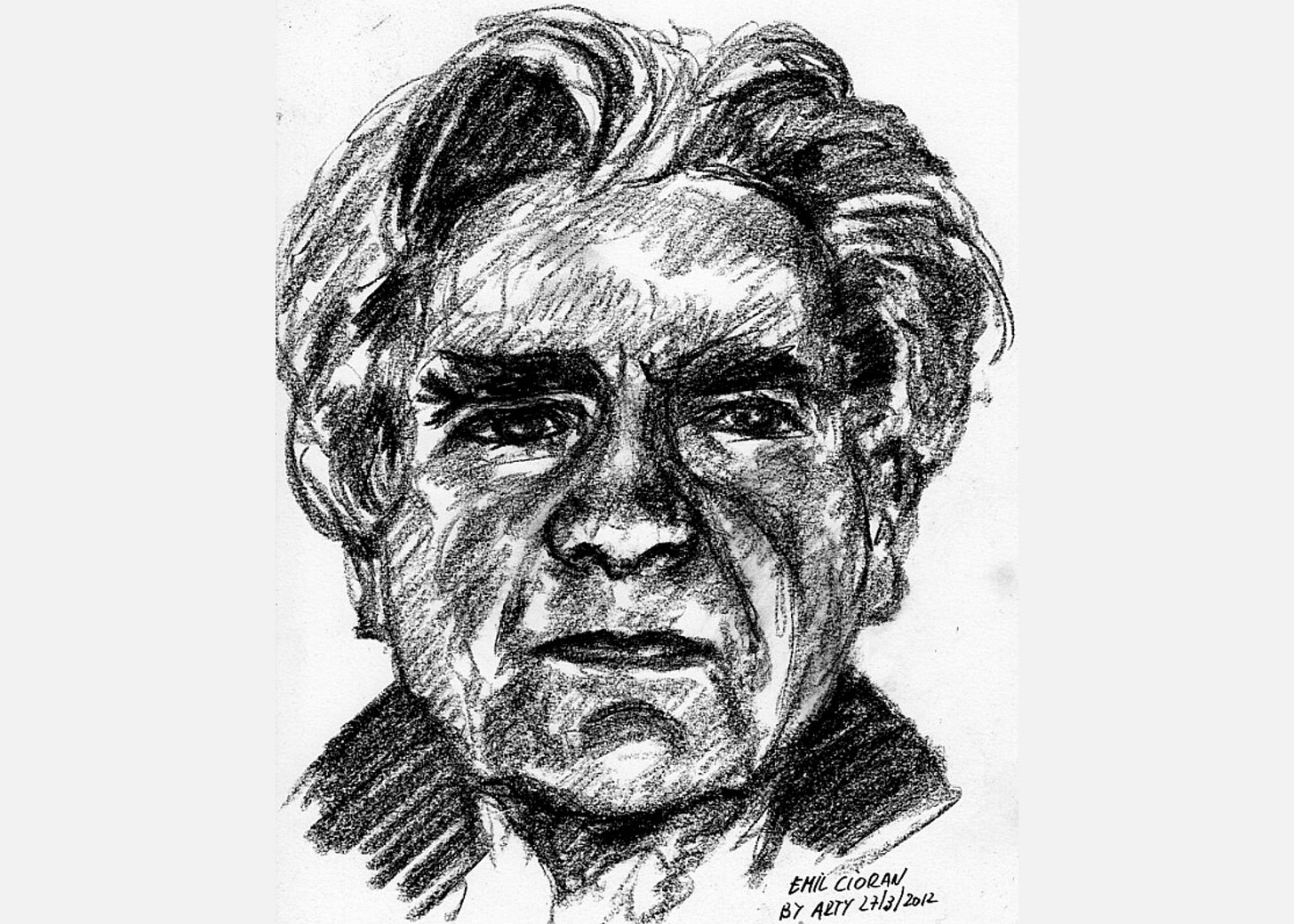
Oy! Great writing and a stressful read, Sanj. Now I need to go outside and listen to the birds sing and enjoy the breeze. Even in dark times like this, staying hopeful is an act of rebellion when the super villains want everyone defeated.